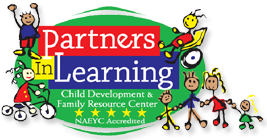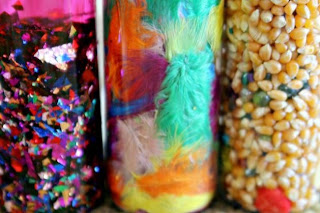Often I am asked how it is that I work with children. Most people continue with "I couldn't do that!" or "Don't you get a head ache?!", and the best response is "I'd want to pull my hair out if I had to watch kids for a living!". I answer these questions in complete honesty with a big fat yes!
Absolutely there are days that I want to pull out my hair and scream, there are days when I get in my car, head throbbing, and drive home in complete silence, and there are certainly days when I question if I'm cut out for the job. I won't lie and pretend to be that happy, optimistic kindergarten teacher who has a closet full of sweaters for every season and occasion :). The simple truth is this, for every bad day I have, I have a million amazing days. These children mean more to me than I ever thought they could. But I bet you're wondering how I do it?? Well there is no pamphlet or video that can fully prepare you for the adventures awaiting you in the classroom.
Just last week I had a child ask me if him and I were to race, who did I think would win. I jokingly said "I bet it would be me!" knowing what I was provoking inside of him. He responded "Well lets race." And we did and he beat me. Then he followed with another question. "Mr. Rob do you know why I beat you?"
"No, why?"
to which he responded "Because you're older than me and older people have lost the spring in their step."
I laughed until I couldn't see straight. He could not have told a funnier joke, that was easily the highlight of my day.
However, on another day, I could have a child so consumed with anxiety that they begin a constant pacing through our room not knowing if they want to bite their nails or jump in my lap, or even a child who becomes angry and begins to have a tantrum because they do not transition well. All of these things can occur on a daily basis. I will confess that with my upbringing, the youngest of four siblings my mother was no stranger to keeping children in line. My father, a former army ranger, was also no stranger to an orderly home, and we were expected to behave in a certain manner no exceptions. But you see, there ARE exceptions!
My parents were amazing parents, as any child there are things I wish they did differently, such as ice cream for supper... :) lol
My point is this, no child is the same, they are all different. What works for one child may not work for another. Special needs, learning delays, even those developing typically with their age require you to get to know them. To answer the question of how I make it work in my room, I get to know my kids. I create that bond where they can feel loved and respected. This can also be applied beyond the classroom. May it be you have two children or twelve, I encourage you to take the time to understand your children. Some of my best moments have been completely candid as I sit down beside them and join in on whatever they are doing, I break down that wall of teacher and student and become friends first. It is hard to be an adult and engage in meaningful play with a child. It is hard to imagine that small being is a person too, with thoughts and feelings that they want to share.
So your challenge is this, during this next week, motivate yourself to take special time with each one of your children, I promise you won't be disappointed.
Rob Gay- CCP














